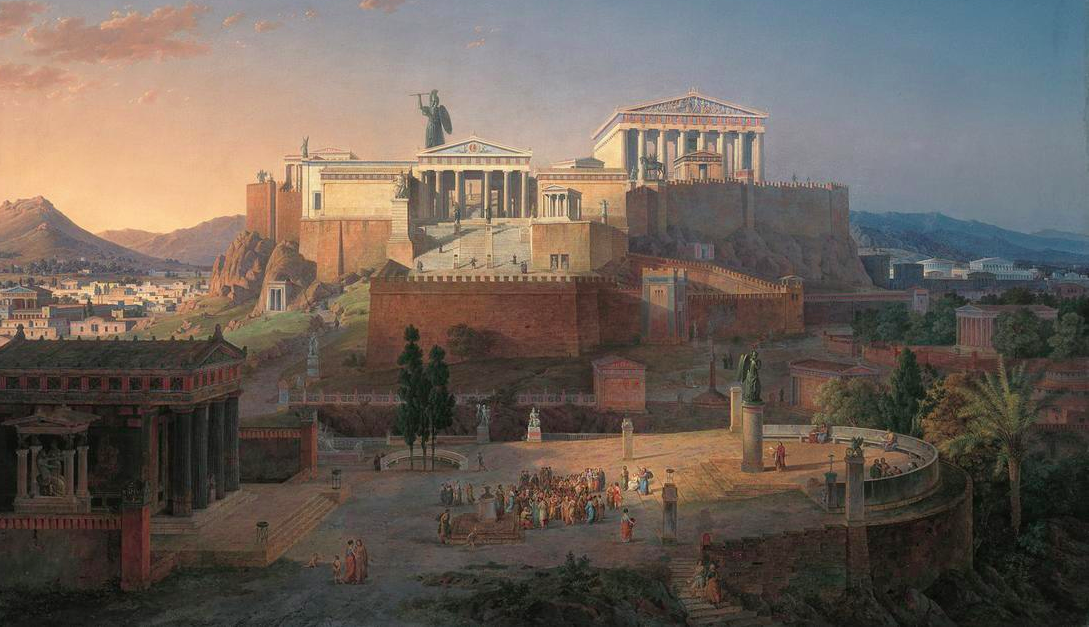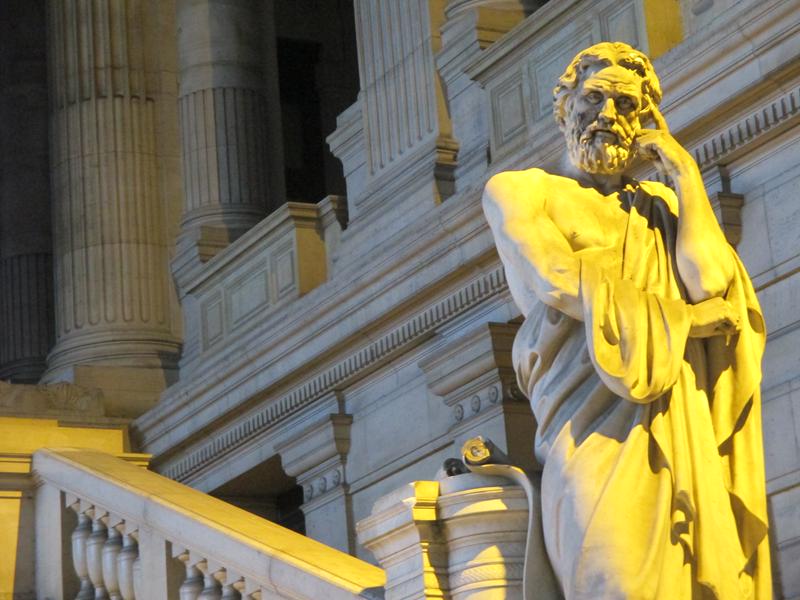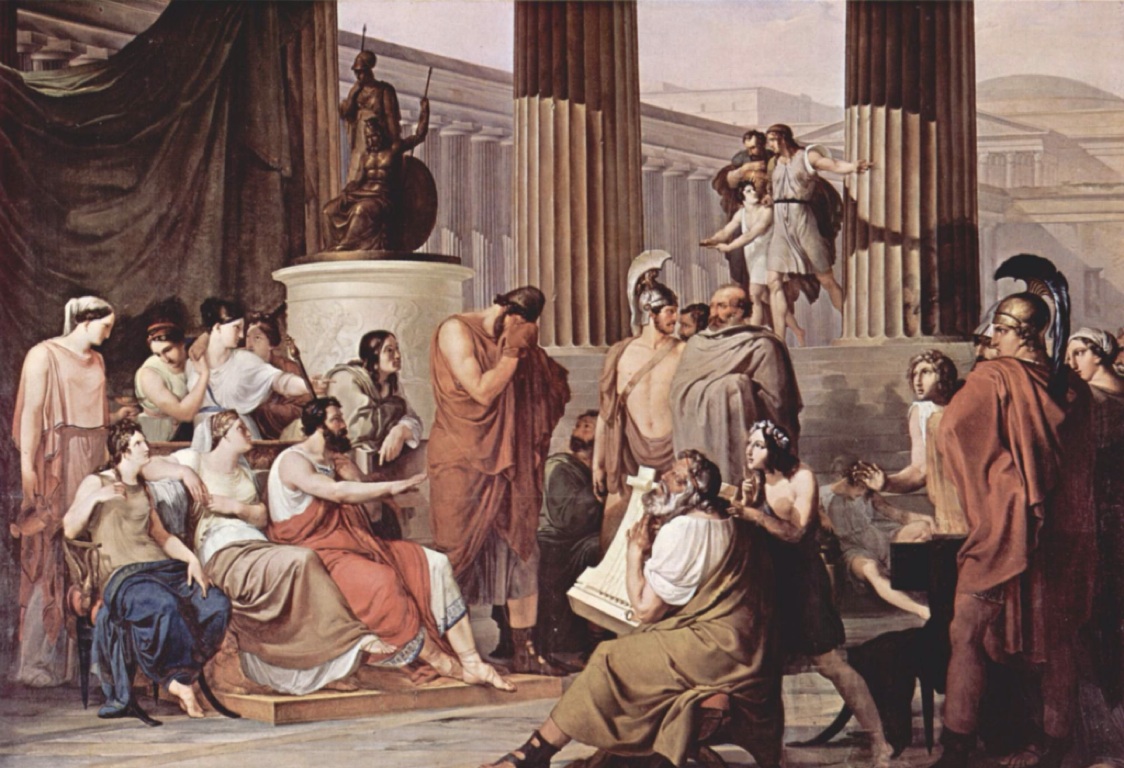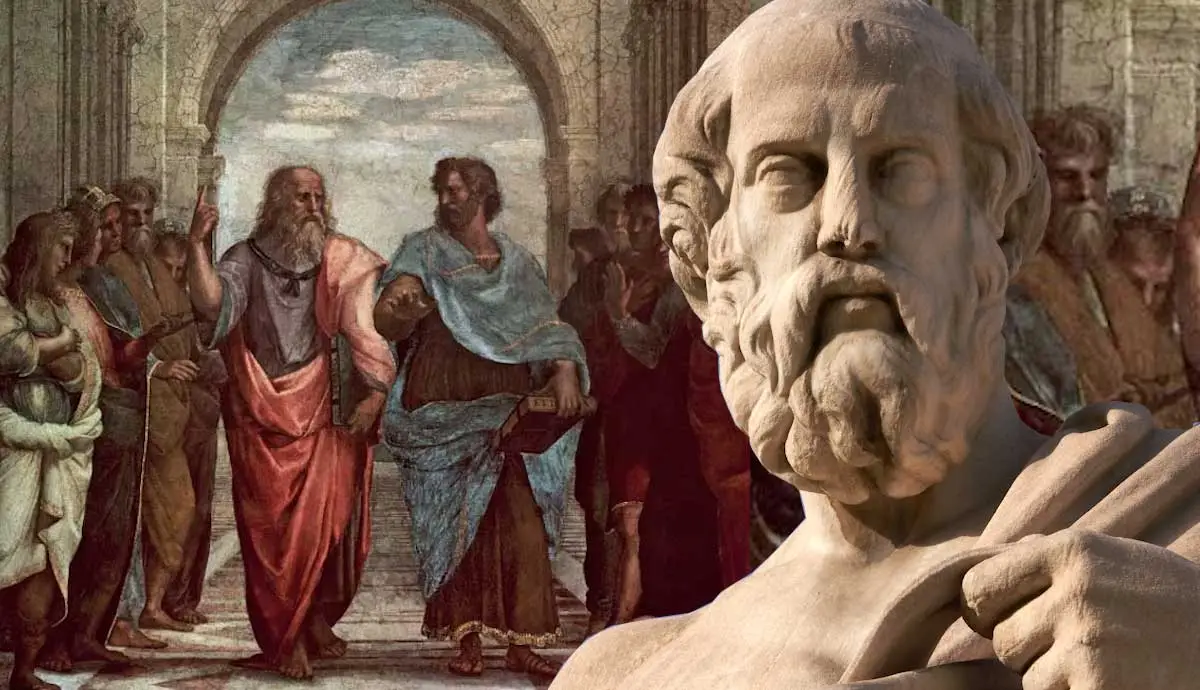Understanding Ancient Greece Law - A Dive Into Legal Principles And Structures
This article delves into the intricacies of Ancient Greece law, exploring its historical development, key legal structures, and enduring influence.
Author:K. N.Nov 28, 202348.4K Shares682.2K Views

Ancient Greece, often heralded as the cradle of Western civilization, boasted a sophisticated legal system that laid the groundwork for modern legal principles. This article delves into the intricacies of Ancient Greece law, exploring its historical development, key legal structures, and enduring influence.
Origins Of Ancient Greece Law
The legal foundations of Ancient Greece were deeply embedded in the city-states that dotted the Hellenic landscape from the 9th to the 6th centuries BCE. These city-states, including prominent ones like Athens and Sparta, laid the groundwork for the rich tapestry of legal systems that would emerge, each shaped by the unique cultural, social, and political landscapes of their respective regions.
City-States As Legal Laboratories
The city-states of Ancient Greece were, in many ways, legal laboratories where diverse legal experiments unfolded. The decentralized nature of governance allowed for the emergence of distinctive legal frameworks, reflecting the autonomous nature of each city-state. This diversity in legal systems was a testament to the decentralized political structure prevalent in ancient Greece.
Athens Vs. Sparta - Contrasting Legal Systems
- Athens:In Athens, a key center of intellectual and democratic innovation, legal codes were progressively developed to establish a more just and egalitarian society. Figures like Draco and Solon contributed significantly to the codification of laws, albeit with varying degrees of severity. The Athenian legal system aimed to balance the scales of justice, setting a precedent for the importance of fairness in legal proceedings.
- Sparta:Contrastingly, the militaristic city-state of Spartafocused on a legal system geared towards the maintenance of a highly disciplined and regimented society. The emphasis was on preserving the state and its military prowess, resulting in a legal framework that prioritized order and conformity over individual liberties.
Legal Evolution Over Centuries
The evolution of ancient Greece law was not static; rather, it unfolded dynamically over the centuries. As societies encountered new challenges and opportunities, legal systems adapted to address emerging issues. This continual evolution marked a departure from rigid legal structures and contributed to the resilience and relevance of Greek legal principles.
Influence Of Geographic And Cultural Factors
Geographic and cultural factors played a crucial role in shaping legal norms. Coastal city-states, for example, were influenced by maritime trade and interaction with diverse cultures, leading to legal systems that accommodated such exchanges. In contrast, landlocked regions developed legal codes more focused on agricultural and territorial concerns.
Legal Principles In Ancient Greece
Ancient Greek law was characterized by foundational principles that not only shaped the legal landscape of the time but also left an enduring impact on the evolution of Western legal systems. Two key principles stand out:
Equality Before The Law
One of the cornerstones of Ancient Greece law was the revolutionary concept of equality before the law. While the scope of this principle was not all-encompassing—excluding certain groups such as slaves and women—its introduction marked a significant departure from the arbitrary and capricious legal systems of earlier civilizations.
In the eyes of the law, citizens were deemed equal, entitled to a fair trial and legal representation. This groundbreaking notion laid the groundwork for the democratic ideals that would echo through the corridors of legal history.
Fair Trial As A Pillar Of Justice
The emphasis on a fair trial was a radical departure from earlier authoritarian systems. Legal codes, such as those formulated by Solon in Athens, sought to establish a more just and equitable society by ensuring that individuals accused of wrongdoing had the opportunity to present their case before an impartial tribunal. This commitment to fairness contributed to the development of the rule of law, a principle that transcended individual rulers or whims.
Legal Representation And Advocacy
In Ancient Greece, the idea of legal representation gained traction. While not as formalized as contemporary legal systems, the concept of having someone argue on behalf of the accused or the plaintiff marked a step towards recognizing the importance of articulating one's case effectively. This early acknowledgment of the right to legal representation would later evolve into a fundamental tenet of modern legal systems.
Role Of Citizens In Legal Processes
Active citizen participation was not only encouraged but integral to the fabric of the legal framework in Ancient Greece. Unlike autocratic regimes where legal decisions were handed down by rulers or elites, Ancient Greece embraced a participatory approach to justice.
Citizen Juries - A Democratic Innovation
Perhaps one of the most remarkable features of Ancient Greece law was the establishment of citizen juries. These juries, comprised of ordinary citizens selected at random, played a pivotal role in determining guilt or innocence. This democratization of justice empowered the citizenry and ensured that legal decisions were not concentrated in the hands of a select few.
For more intriguing insights into Ancient Greek practices and to debunk some common myths, check out Greeklish.net's explorationof historical narratives.
Assembly Deliberations - Direct Democracy In Action
The legal processes were not confined to courtrooms alone. Citizens actively participated in decision-making through popular assemblies. Here, they debated laws, proposed reforms, and influenced the course of legal developments. This direct involvement of citizens in shaping the legal landscape laid the foundation for the democratic governance that would later become a hallmark of Western political systems.
Legal Diversity And Dispute Resolution In Ancient Greece
In Ancient Greece, the legal landscape was characterized by a lack of a centralized, unified code applicable to all citizens. Unlike modern legal systems with comprehensive statutes, Ancient Greece did not have a singular set of laws governing its diverse city-states. Instead, legal practices were deeply embedded in the cultural fabric of individual communities, leading to a rich tapestry of legal norms.
Absence Of A Unified Code Of Law
The absence of a unified legal code was emblematic of the decentralized nature of governance in Ancient Greece. Each city-state, from Athens to Sparta, developed its own set of laws tailored to the specific needs, values, and traditions of its citizens. This decentralized legal framework allowed for a certain degree of flexibility but also resulted in legal diversity that varied widely from one region to another.
Dispute Resolution Through Negotiation And Mediation
In the absence of a formalized court system, disputes were commonly resolved through negotiation and mediation. The emphasis on reaching amicable solutions through dialogue and compromise was a testament to the pragmatic approach of Ancient Greek communities. Dispute resolution often involved respected community members acting as mediators, helping parties find common ground without resorting to more formal legal proceedings.
Role Of Mediators
Mediators, often chosen for their impartiality and wisdom, played a crucial role in resolving conflicts. Their objective was to facilitate communication, understand the perspectives of the involved parties, and guide them toward mutually agreeable resolutions. This emphasis on consensus-building contributed to a sense of community cohesion.
Importance Of Negotiation Skills
Negotiation skills were highly valued in Ancient Greece, and individuals adept at resolving conflicts peacefully held esteemed positions in society. The ability to navigate disputes without resorting to formal legal action was seen as a sign of wisdom and civic responsibility.
Decentralized Punishment Practices
In matters of crime and punishment, the Ancient Greek legal landscape diverged significantly from modern systems. Rather than relying on a centralized judicial authority, punishment for crimes was often left to the discretion of the victim or the victim's family. This approach reflected a belief in personal responsibility and restitution.
Victim-Centric Justice
Justice, in this context, was more personalized and decentralized. Victims had the agency to decide the appropriate course of action, which could include financial restitution, exile, or other measures deemed suitable for addressing the harm caused.
Community Accountability
The decentralized nature of punishment also extended to a communal sense of accountability. Communities played a role in ensuring that individuals adhered to shared norms, and transgressors faced consequences that were determined within the social context.
Athenian Democracy And Legal Structures
The Athenian Legal System
In the crucible of Ancient Greece, Athens emerged as a beacon of democracy, its legal system reflecting a delicate balance between severity and reform.
Draco's Legal Code - A Draconian Precedent
Draco's legal code, etched in the 7th century BCE, left an indelible mark on Athenian law. Its severity, epitomized by harsh punishments for even minor transgressions, set the stage for the codification of legal principles. Despite the infamy of Draco's laws, they established a standardized framework crucial for subsequent legal developments.
Solon's Legal Reforms - Forging A Path To Justice
In the 6th century BCE, Solon undertook transformative legal reforms aimed at rectifying social inequalities. Unlike Draco's draconian approach, Solon sought a balance between justice and fairness. His laws, less punitive in nature, introduced the concept of equality before the law, a foundational principle that resonates through the annals of democratic thought.
Courts And Trials In Athens
The judicial apparatus of Athens was an embodiment of openness, transparency, and citizen involvement, reflecting the democratic spirit of the city-state.
Athenian Courts - Areopagus And Heliaia
Athenian justice unfolded in various courts, notably the Areopagus and the Heliaia. The Areopagus, once an aristocratic council, evolved into a judicial body focused on grave offenses. In contrast, the Heliaia became the people's court, handling a spectrum of cases. These institutions bridged aristocratic and democratic elements, symbolizing Athens' commitment to diverse perspectives in the pursuit of justice.
Public Trials - Theatres Of Justice
Trials in Athens were not cloistered affairs; they were public spectacles held in spaces like the Pnyx and the Agora. This openness served the dual purpose of ensuring transparency and fostering civic engagement. Citizens, acting as jurors, converged to witness legal proceedings, embodying the democratic principle that justice was not a clandestine endeavor but a communal responsibility.
Role Of Jurors - The Essence Of Direct Democracy
In a groundbreaking display of direct democracy, jurors were chosen by lot from the eligible citizenry. This random selection prevented corruption and ensured a broad representation in legal proceedings. Jurors were not passive observers but active participants, rendering verdicts and determining sentences, thereby reinforcing the Athenian belief in collective responsibility for justice.
Philosophical Foundations Of Greek Law
Plato's Influence On Legal Thought
The philosophical underpinnings of Greek law found profound expression through the works of Plato, whose intellectual contributions transcended the realms of mere academia to shape the very fabric of legal philosophy.
Plato's "Laws" - Exploring Morality And Governance
In his seminal work, "Laws," Plato embarked on a philosophical exploration of the intricate interplay between law and morality. Written in the form of a dialogue, this magnum opus delved deep into the conceptual foundations of justice, examining how laws could serve as moral guides for individuals and society. Plato's "Laws" not only influenced his contemporaries but also cast a long shadow over subsequent generations, fostering enduring discussions on the ethical dimensions of legal systems.
Aristotle's Legal Theory
Building upon the philosophical legacy of Plato, Aristotle, a distinguished student of Plato, further enriched Greek legal theory with his nuanced perspectives and comprehensive analyses.
The Rule Of Law - Aristotle's Guiding Principle
Aristotle's legal theory, encapsulated in works such as "Nicomachean Ethics" and "Politics," prominently featured the concept of the rule of law. Aristotle argued that a just society could only be achieved through governance based on laws rather than the arbitrary whims of rulers. This emphasis on the rule of law laid the groundwork for the development of legal systems that transcended individual authority, contributing to the evolution of constitutionalism.
The Mixed Constitution - Balancing Political Forces
Aristotle's insights into governance extended to his exploration of the "mixed constitution." Drawing inspiration from the political structures of various Greek city-states, Aristotle advocated for a balanced governance model that incorporated elements of monarchy, aristocracy, and democracy. This concept of balance aimed to prevent the excesses associated with pure forms of government, fostering stability and equity within a society. Aristotle's theories on the mixed constitution became foundational in discussions on political philosophy and governance.
Enduring Impact On Legal Principles
The philosophical foundations laid by Plato and Aristotle reverberate through the corridors of legal thought, leaving an indelible mark on the principles that underpin modern legal systems.
Morality, Justice, And Law
Plato's emphasis on the moral dimensions of law and Aristotle's focus on the rule of law have endured as guiding principles in contemporary legal philosophy. The ongoing discourse on the ethical responsibilities of legal systems owes much to the foundational ideas presented by these Greek philosophers.
Constitutionalism And Balanced Governance
Aristotle's theories on the mixed constitution laid the groundwork for the development of constitutionalism, emphasizing the importance of checks and balances within political structures. These ideas continue to shape discussions on governance, informing the structures of modern democratic societies.
Ethics - Contrasting Ancient Greece And Modern Europe
The trajectory of ethical principles across different civilizations provides a fascinating lens through which we can examine the evolution of societal values. A particularly intriguing comparison lies between Ancient Greece and modern Europe, two epochs that have significantly shaped the ethical landscapes of their respective times.
Ancient Greece - Virtue And Individual Excellence
In Ancient Greece, ethical considerations were deeply entwined with philosophical thought and civic life. The philosophical musings of luminaries like Socrates, Plato, and Aristotle emphasized the cultivation of virtue and the pursuit of individual excellence. Ethical behavior was seen as essential for the well-being of both the individual and the community, with virtues like courage, justice, and wisdom held in high regard.
The ethical principles of Ancient Greece were often intertwined with religious beliefs, as seen in the moral codes expressed in Greek tragedies and epics. Duty to the state, family, and gods played a pivotal role in shaping ethical norms, creating a complex web of interconnected values.
Modern Europe - Human Rights And Social Justice
In contrast, the ethical framework of modern Europe, particularly in the post-Enlightenment era, is characterized by a shift towards human rights, social justice, and individual freedoms. The Enlightenment emphasized reason, scientific inquiry, and the inherent dignity of every individual. This intellectual movement laid the groundwork for the development of ethical principles rooted in secularism, democracy, and the protection of fundamental human rights.
The emergence of medical ethics is a notable facet of modern European ethical considerations. The principles of autonomy, beneficence, non-maleficence, and justice underpin medical ethics today, guiding the conduct of healthcare professionals and researchers.
As we delve into the ethical considerations within modern medicine, the exploration of fractional laser technologyoffers valuable insights. This cutting-edge approach in dermatology raises ethical questions related to patient consent, safety, and the balance between aesthetic aspirations and medical ethics. Stationzilla.com provides a comprehensive examination of the ethical dimensions associated with fractional laser technology, contributing to the ongoing discourse on medical ethics in contemporary Europe.
In essence, the evolution of ethical principles from Ancient Greece to modern Europe reflects the changing dynamics of societies and the philosophical underpinnings that shape our moral compass. Exploring these contrasts not only deepens our understanding of the past but also prompts critical reflections on the ethical frameworks that guide us today.
Ancient Greece Law - FAQs
What Is The Ancient Greek Law?
Ancient Greek law refers to the legal systems and principles that governed the city-states of ancient Greece, evolving over several centuries. The legal landscape was characterized by a lack of a unified code applicable to all citizens. Instead, different city-states, such as Athens and Sparta, developed their own distinct legal systems. The legal framework often emphasized concepts like equality before the law, citizen participation, and the rule of law, with notable legal figures such as Draco and Solon contributing to early codification efforts.
What Is The Main Law In Greece?
Greece operates under a modern legal system, and its legal framework is primarily based on statutory law, which includes a constitution, codes, and legislation. The Constitution of Greece, adopted in 1975, serves as the fundamental law of the country. It outlines the structure of the government, the rights of citizens, and the basic principles of the legal system. Additionally, various codes and laws govern specific areas such as civil law, criminal law, and administrative law.
What Was The First Greek Code Of Laws?
The first known Greek code of laws was attributed to Draco, a legislator in Athens. This legal code, often referred to as "Draco's Code," was established around 621 BCE. Notorious for its severity, Draco's laws were inscribed on wooden tablets and were notable for prescribing harsh punishments, even for minor offenses. While Draco's legal code did not endure in its entirety, it marked an early attempt at codifying legal principles in ancient Greece. Later, Solon, another prominent legislator, introduced significant legal reforms in Athens in the 6th century BCE, contributing to the evolution of Greek law.
Conclusion
Ancient Greece law, with its emphasis on equality, citizen involvement, and codification, remains a pivotal chapter in the evolution of legal systems. By understanding the principles and structures that defined Ancient Greece law, we gain valuable insights into the origins of the legal frameworks that shape our societies today.

K. N.
Author
Latest Articles
Popular Articles




